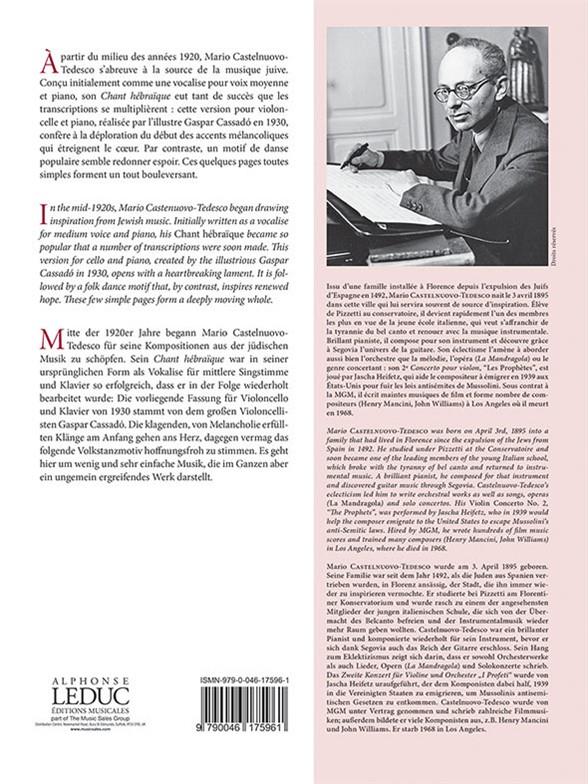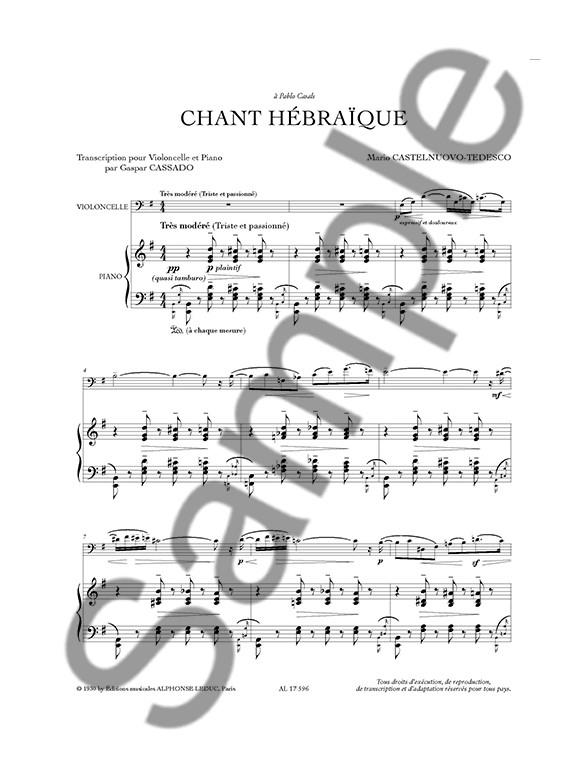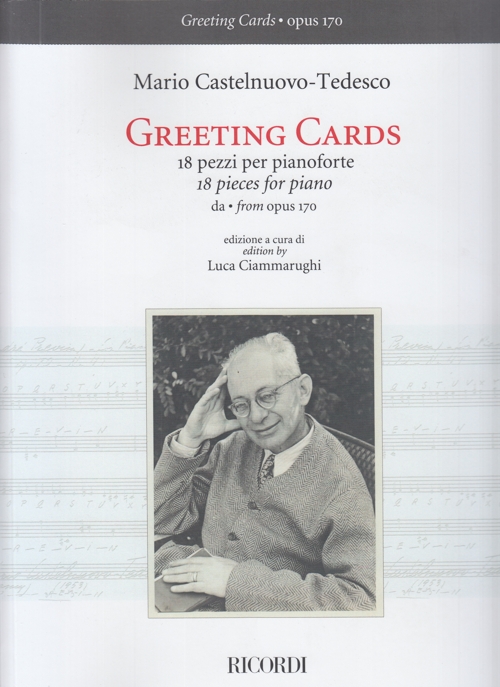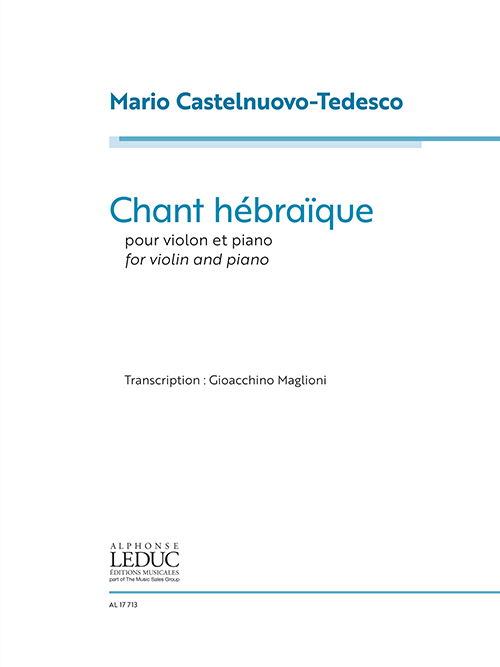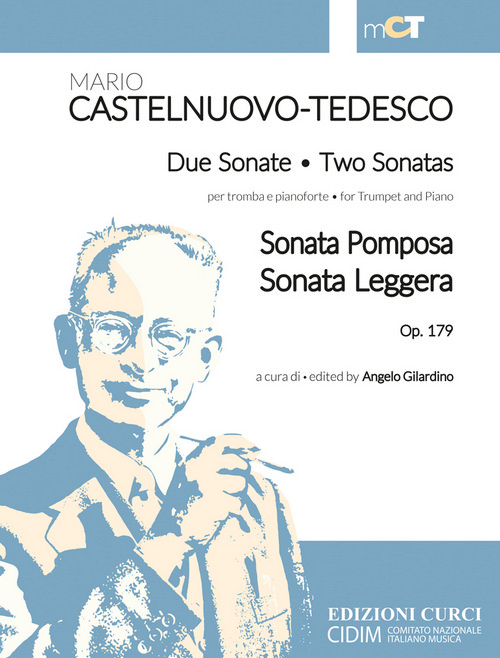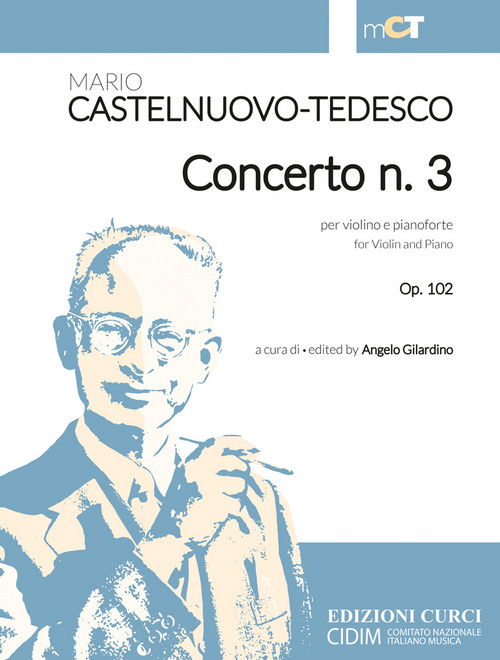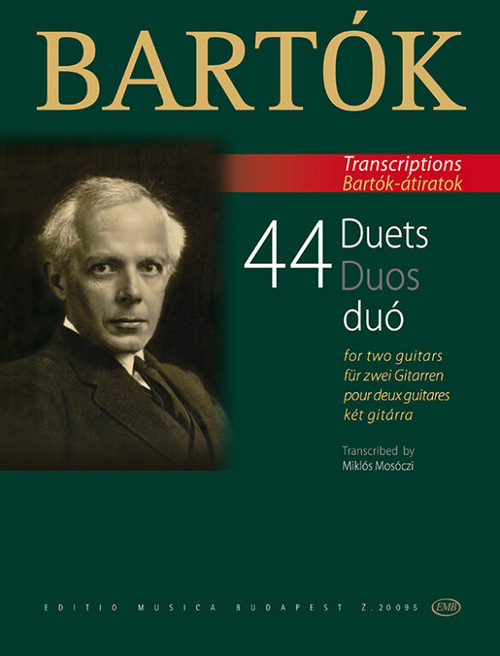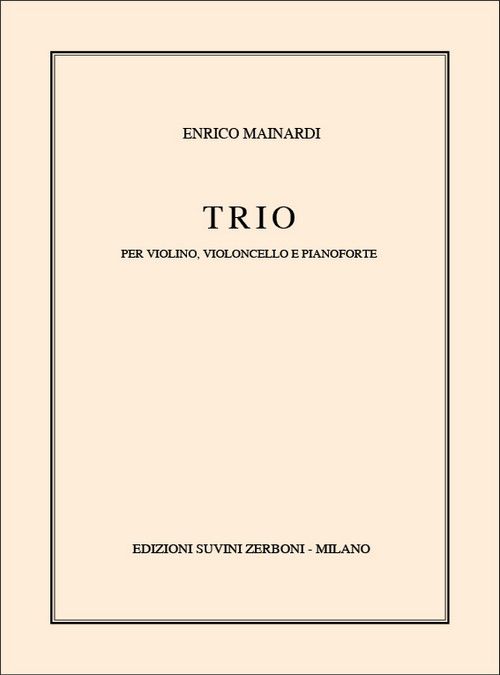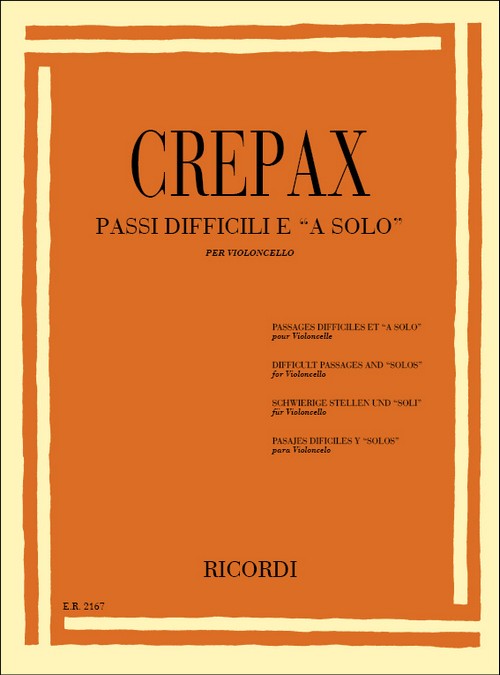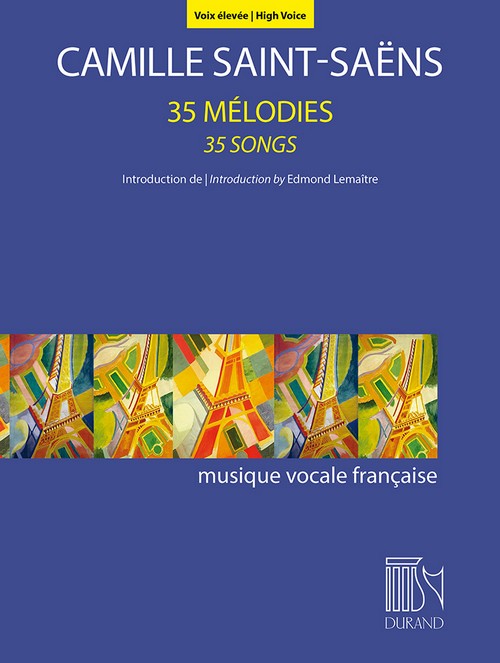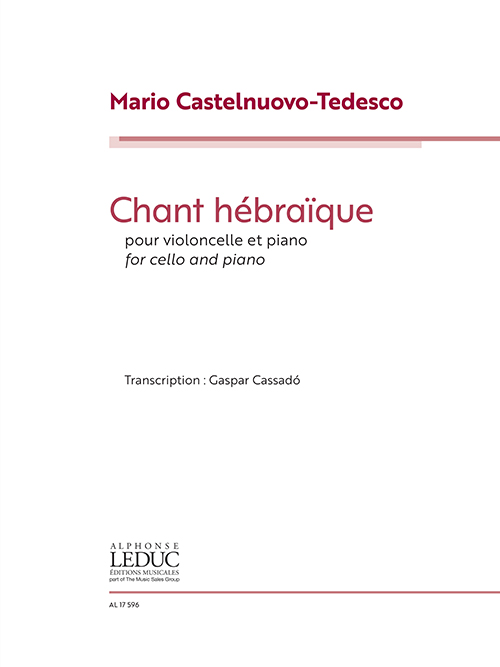
Chant Hébraïque for Cello and Piano
Castelnuovo-Tedesco, Mario
Alphonse Leduc. 2018Instrumento:
Ficha técnica
- EAN: 9790046175961
- ISBN: 979-0-046-17596-1
- Código del editor: AL17596
- Editorial: Alphonse Leduc
- Fecha de edición: 2018
- Nº páginas: 16
Bajo pedido
Sin stock. Si se pide hoy, se estima recibir en la librería el 26/04/24PVP. 13,80€
Añadir a la Lista de deseos
Born into a family of bankers that had lived in Florence since the expulsion of the Jews from Spain in 1492, Mario Castelnuovo-Tedesco (1895-1968) studied under Pizzetti at the city's Conservatoire. He soon became one of the leading members of the young Italian school, which broke with the tyranny of bel canto to return to the instrumental tradition of the Italian masters from the Baroque era. In 1928, Amédée-Landély Hettich, a vocal teacher in Paris, asked Castelnuovo-Tedesco to write a vocalise for the Répertoire moderne de Vocalises-Études, the publication of which he was supervising at Leduc. Castelnuovo-Tedesco's contribution,entitled Vocalise-Étude for Medium Voice, became so popular that it was immediately transcribed several times over. The present adaptation for cello and piano, was created, with prior consent from the composer, by the famous Catalan cellist Gaspar Cassado in 1930. The works opens with a poignant lamento that grieves the tragic fate of the Jewish people; it is followed by a folk dance whose 'brisk and stubborn' movement marks, with panache, an imperious refusal to yield to resignation. The composer adopted the same proactive stance himself when in 1939, fleeing Mussolini's antisemitic laws, he decided to emigrate to the United States, a land of refuge to which he would remain faithful until his death some thirty years later. Born into a family of bankers that had lived in Florence since the expulsion of the Jews from Spain in 1492, Mario Castelnuovo-Tedesco (1895-1968) studied under Pizzetti at the city's Conservatoire. He soon became one of the leading members of the young Italian school, which broke with the tyranny of bel canto to return to the instrumental tradition of the Italian masters from the Baroque era. In 1928, Amédée-Landély Hettich, a vocal teacher in Paris, asked Castelnuovo-Tedesco to write a vocalise for the Répertoire moderne de Vocalises-Études, the publication of which he was supervising at Leduc. Castelnuovo-Tedesco'scontribution, entitled Vocalise-Étude for Medium Voice, became so popular that it was immediately transcribed several times over.
The present adaptation for cello and piano, was created, with prior consent from the composer, by the famous Catalan cellist Gaspar Cassado in 1930. The works opens with a poignant lamento that grieves the tragic fate of the Jewish people; it is followed by a folk dance whose 'brisk and stubborn' movement marks, with panache, an imperious refusal to yield to resignation. The composer adopted the same proactive stance himself when in 1939, fleeing Mussolini's antisemitic laws, he decided to emigrate to the United States, a land of refuge to which he would remain faithful until his death some thirty years later.

